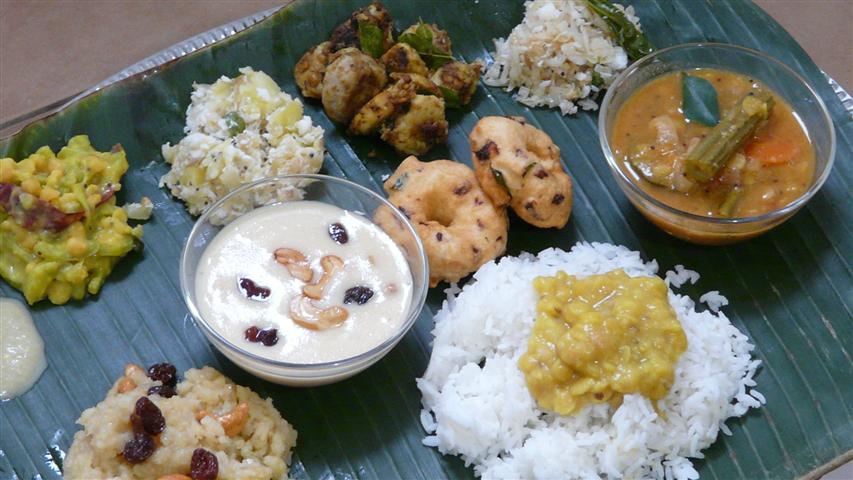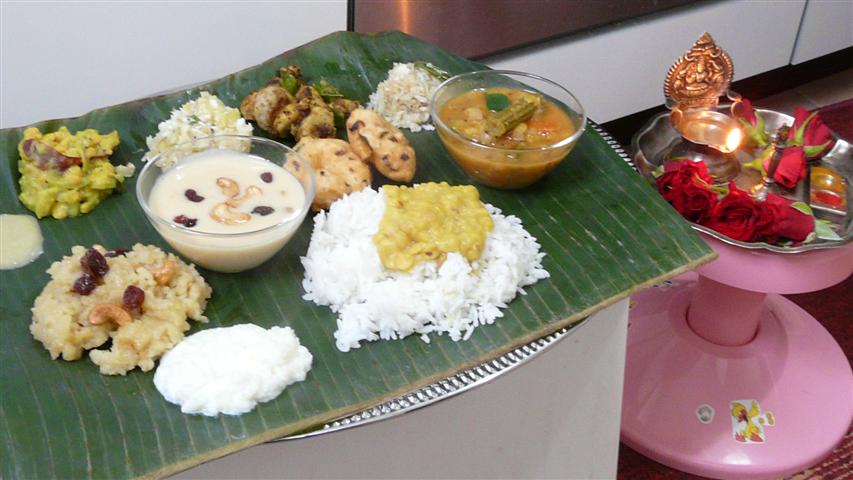Pongalo Pongal – Indian Harvest Festival
Â
 I wish all my friends and viewers a Happy and prosperous New Year and Pongal.
I wish all my friends and viewers a Happy and prosperous New Year and Pongal.
Pongal is one of the main festivals in India. It is celebrated from January 14th – 16th. Though it is called by different names like Sankranthi, Makara Sankranthi, and Lohri in different parts of India, the purpose is the same. Yes, its Harvest time, and people wish to thank the Sun God for abundant sun source to the growth of their crops, on this Harvest festival. As a part of the festive people in India wear new dresses and share happiness by wishing relatives and friends. The main harvested crops during this season in South Indian are Rice, Sugarcane, and Turmeric.
The Harvest festival is been celebrated in other parts of the world as well, like Chuseok(Korea), Niiname-Sai(Japan), Erntedank(Germany, Austria), Harvest Festival(UK), Thanksgiving Day(US, Canada) and so on.[Source: Wikipedia]
As always there is a typical type of food that is connected with this festival and it is called Pongal. The food name and festival name are the same. The Tamil word Pongal means that, little spilling of boiling cooked rice from the clay pot. people in their households make Pongal in an open area, field, or garden, facing the sun god. All of them wait for the auspicious moment when the rice is almost cooked and spills out from the pot, it means prosperity and material abundance. Everyone says “Pongalo Pongal” and thank Sun God.
The food Pongal can be of two types Sweet Pongal( Rice, Jaggery, lentils, milk) and Pongal( Rice, Milk ). However, most of them also make Venpongal(Rice, Lentils). Apart from the famous Pongal food, other different types of vegetables, lentils, Rice, Vadai, Payasam are made and served in Banana leaf. At first, the food is offered to Sun god with Pooja(Workship) and then the rest of the family enjoy the healthy traditional south Indian food.
Views: 2971

a lovely spread…wish you and your family a very happy pongal
Satya
Super Yummy Recipes
Pongal Wishes to you and your family..
thats a yummy inviting platter…
Happy Pongal wishes to you and your family..omg, wat a delicious and yummy spread..
Happy Pongal dear! The food in that platter look so yum…
Happy Pongal dear…!
I loved everything on the vazhayile!!! Super delicious feast! 😀
your padayal looks lovely dear….
Event: Dish Name Starts with E
Learning-to-cook
Regards,
Akila
mmm…delicious….great flavours..
Tasty appetite
What a feast ! Hope you all had a great time 🙂
Oooooooh SO NICE…
Great Banana Leaf meal… Mouth watering ! wowww
oh my god! what a lovely spread…